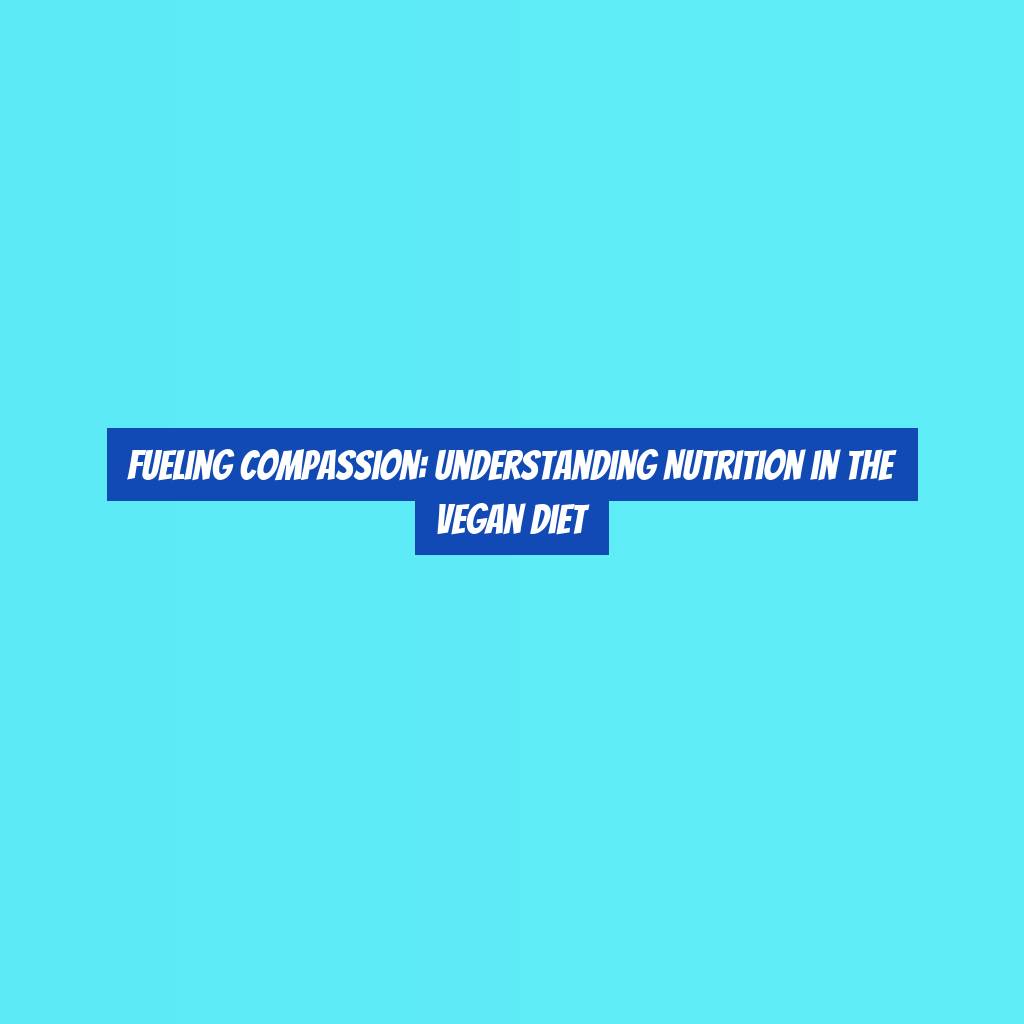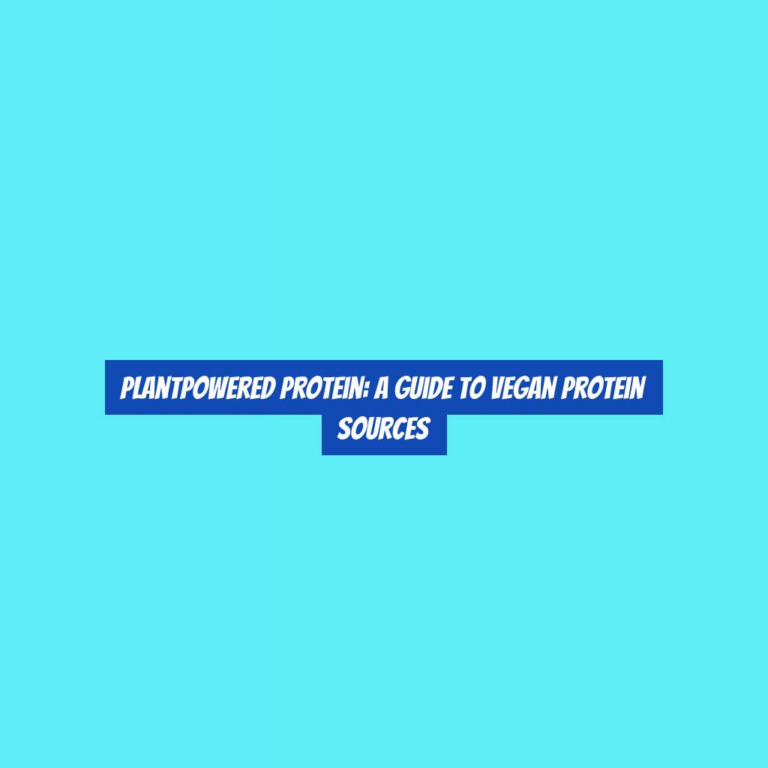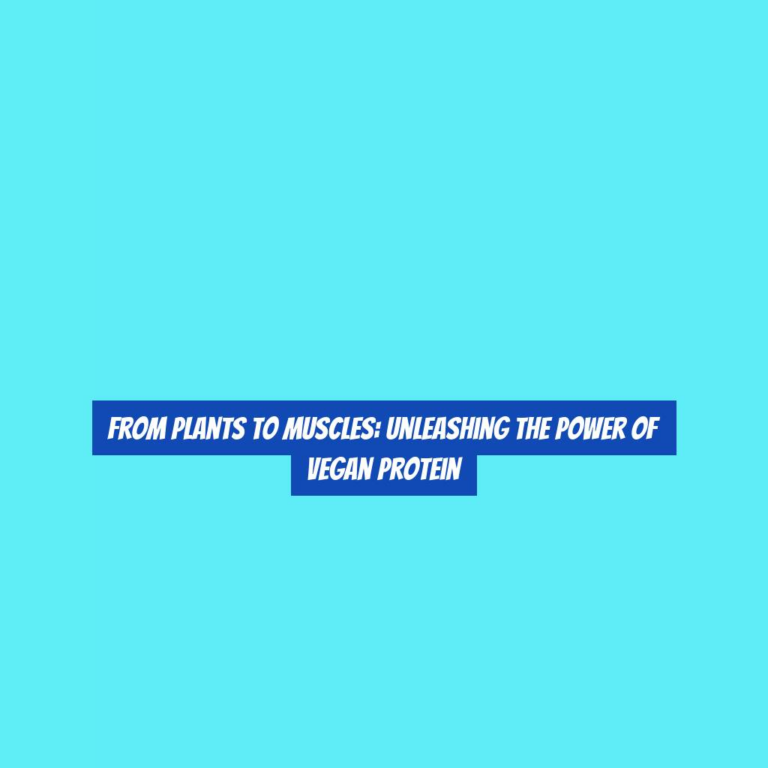Fueling Compassion: Understanding Nutrition in the Vegan Diet
If youG??re considering adopting a vegan diet, youG??re joining a growing movement; in fact, according to a recent study by the Vegan Society, the number of vegans in the UK has quadrupled in the past decade.
But before you dive into this plant-based lifestyle, itG??s essential to understand the nutritional aspects to ensure you maintain a healthy and balanced diet. From meeting your protein needs to getting enough essential vitamins and minerals, the vegan diet requires careful consideration to fuel both your body and your compassion for animals.
The Basics of Vegan Nutrition
If youG??re new to the vegan diet, understanding the basics of vegan nutrition is crucial for ensuring you meet your dietary needs. ItG??s essential to focus on a well-balanced diet that provides all the necessary nutrients.
Start by incorporating a variety of fruits, vegetables, whole grains, legumes, nuts, and seeds into your meals. These plant-based foods are rich in essential vitamins, minerals, and fiber.
To ensure an adequate intake of protein, include sources such as tofu, tempeh, lentils, chickpeas, and quinoa in your diet. Additionally, fortified foods like plant-based milk, cereals, and nutritional yeast can help meet your vitamin B12 needs.
Omega-3 fatty acids can be obtained from sources like flaxseeds, chia seeds, and walnuts. ItG??s also important to monitor your calcium intake by consuming fortified plant-based milk and leafy greens.
Essential Nutrients for Vegans
As you explore essential nutrients for vegans, itG??s important to understand how incorporating a variety of plant-based foods can provide the necessary vitamins and minerals for a well-rounded diet. A well-planned vegan diet can meet the bodyG??s nutritional needs and offer a range of health benefits.
Here are some essential nutrients to focus on:
-
Protein: Incorporate sources such as tofu, tempeh, lentils, chickpeas, quinoa, and nuts to ensure an adequate intake of protein.
-
Iron: Consume iron-rich foods like spinach, lentils, chickpeas, and fortified cereals to maintain optimal iron levels.
-
Calcium: Include calcium-fortified plant milks, tofu, almonds, and leafy greens like kale and collard greens to support bone health.
-
Vitamin B12: Consider fortified foods or a vitamin B12 supplement, as this vitamin is typically found in animal products.
Tips for Meeting Nutritional Needs
To ensure youG??re meeting your nutritional needs on a vegan diet, itG??s important to plan your meals carefully to include a diverse range of nutrient-rich plant-based foods.
Start by incorporating a variety of fruits and vegetables into your daily meals. Different colored fruits and vegetables offer different vitamins and minerals, so aim for a rainbow on your plate.
Legumes, such as lentils, chickpeas, and black beans, are excellent sources of protein, fiber, and iron.
Including whole grains like quinoa, brown rice, and oats in your diet can provide essential nutrients such as B vitamins and magnesium.
Nuts and seeds are great for healthy fats and protein, but also for important micronutrients like zinc and selenium.
To ensure youG??re getting enough calcium, include fortified plant-based milk alternatives, tofu, and leafy greens in your diet.
Lastly, consider taking a vitamin B12 supplement, as this essential nutrient is primarily found in animal products.
Navigating Common Dietary Challenges
Navigating common dietary challenges as a vegan requires understanding how to overcome potential obstacles in meeting your nutritional needs. While the vegan diet offers numerous health benefits, itG??s essential to be aware of potential challenges and how to address them effectively.
Here are some common dietary challenges you may face as a vegan:
-
Protein Intake: Ensuring an adequate intake of protein can be a concern for vegans. Incorporating sources such as tofu, tempeh, lentils, beans, and quinoa can help meet your protein needs.
-
Vitamin B12: This essential nutrient is primarily found in animal products. Consider taking a B12 supplement or consuming B12-fortified foods like nutritional yeast or plant-based milk.
-
Iron Absorption: Plant-based iron sources are abundant, but the body may not absorb them as efficiently as iron from animal products. Consuming vitamin C-rich foods alongside iron sources can enhance absorption.
-
Omega-3 Fatty Acids****: While commonly found in fish, vegans can obtain omega-3 fatty acids from sources like flaxseeds, chia seeds, and walnuts, or through algae-based supplements.
Understanding and addressing these dietary challenges will help you maintain a well-rounded and nutritionally balanced vegan diet.
Vegan Nutrition for Optimal Health
Vegan nutrition plays a crucial role in supporting optimal health and well-being, offering a diverse range of nutrient-rich options to meet your dietary needs. Focusing on whole grains, fruits, vegetables, legumes, nuts, and seeds provides you with essential vitamins, minerals, and antioxidants. These components are vital for maintaining a strong immune system, reducing inflammation, and supporting overall health.
Consuming a variety of plant-based proteins such as tofu, tempeh, and lentils ensures that you receive all the essential amino acids necessary for muscle repair and growth. Additionally, incorporating sources of omega-3 fatty acids like flaxseeds, chia seeds, and walnuts contributes to heart and brain health.
By consuming an array of colorful fruits and vegetables, you benefit from various phytonutrients that support cellular function and help prevent chronic diseases. Furthermore, fortified foods and supplements can aid in meeting specific nutrient requirements, such as vitamin B12 and vitamin D.
With a well-planned vegan diet, you can achieve optimal health and vitality while enjoying a wide array of flavorful and satisfying foods.
Conclusion
In conclusion, understanding the basics of vegan nutrition and essential nutrients is key to fueling compassion and maintaining a healthy vegan diet.
With a focus on meeting nutritional needs and navigating dietary challenges, you can optimize your health on a vegan diet.
By staying informed and making thoughtful food choices, you can ensure that your body receives the nourishment it needs to thrive.
Keep exploring new recipes and ingredients to keep your vegan diet interesting and fulfilling.



